|
In Taiwan, funerals and death rituals are very different that funerals in the west. Taiwan's funeral rites are influenced by Buddhism, Taoism, ancestor worship, and folk religion. In this blog, we will explore the different funeral rituals and rites, and let you know what you can expect at a Taiwanese funeral.
Foreword: Please note this blog and FAQ section are written from the perspective of a long-term American expat married to a Taiwanese spouse. Part of the facts for this blog have been taken from personal experience attending multiple funerals in Taiwan, and also from research such as Chinese anthropology classes and other research.
My Experience attending funerals as a foreigner in Taiwan:
I have attended three funerals in Taiwan. One Buddhist, one Daoist, and one Christian. The Buddhist and Daoist funerals were for my Taiwanese wife's grandma and grandpa on her mother's side. I also attended a Christian funeral of a friend's grandma. First Seven Days (頭七): I was not by the bedside of the loved ones when they died. To tell you the truth as an extended relative I only attended a small part of the ceremony, and for the first funeral my wife was pregnant, so she was forbidden from attending the first seven days and cremation. For the second funeral we had small children, so we were banned from the first seven days again but we saw the cremation. Taiwanese traditionally bring the body of the loved one home and stay next to the corpse for seven days. Family members take turns staying next to the corpse. Even though my wife's parents are Christian, my wife's extended family is not. Therefore all of us still had to take part in the Daoist/Buddhist rituals in some way. My mother-in-law was required to stay overnight with the body of her deceased father and mother for multiple days as part of the first seven days. During this time, I know she and my wife's aunts and female cousins made like a million origami lotus flowers and other paper-folding crafts, which were later ornamented over the corpses. Memorial Service: We only really got to take part in the funeral during the main funeral service (pregnant women and children are allowed to join this). The first time for grandpa's funeral, we went to the Taipei City Mortuary Services Office First Funeral Parlor (臺北市立第一殯儀館), and the second funeral service for grandma a few years later was held in Muzha, at the Taipei City Mortuary Services Office Second Funeral Parlor (臺北市立第二殯儀館). During this time all family members including children were required to wear robes (white/grey/black colors). A priest was leading the ceremony, wearing a yellow robe. The whole family had to take incense, kowtow, and repeat chants. Different family members had to stand up and sit down a ton of times and kotow and recite scripture, sometimes it was only children, only sons, only daughters, only grandchildren, etc., and sometimes the whole family. The beginning of the ceremony was for family only, and about the last half hour was open to the public. As part of the ceremony, family members were able to speak freely and pay their respects to the dead for a short time. Also, pre-written letters written by family members were read about the deceased by the priest. The ceremony lasted about an hour. In the end, there was a casket viewing and the body was hauled off for a while, and prepared for cremation. During the downtime, we ate lunch at a convenience store nearby. We didn't see the cremation for grandpa's funeral, but for grandma's funeral, we walked over to a cremation oven close by in the mortuary complex and watched the cremation. The casket was burned with a ton of ghost money, I mean a truckload of ghost money. We did not see the first cremation so I am not sure if it was the same. The ashes of both grandparents were put in an urn and sent to a Spirit Bone Tower on Yangmingshan. Later my mother-in-law had to visit and perform another ceremony there a month later and a year later, but we did not have to. Also after the funeral, we were given a red sack of money from grandpa's wallet (only like 100 NT in coins), that we couldn't spend until a year later. Other family matters After the funerals, black and white photos of the grandparents were moved over the family shrine, which was on the top floor our the grandparent's house. The oldest son was in charge of keeping the shrine, but because he lives in America, this duty fell to the second son and his wife. Because we were from the daughters' side of the family, we did not have to participate as much in the funeral. Most of the rites require family from the male children, that have the same last name. Also because we are Christian, we are like dead to them because we will not kowtow to them after death. In Taiwanese culture, it is very important to have a son pass on the family name solely for these funeral rites. My Taiwanese brother-in-law still has not told his parents that he was baptized because his parents have high expectations of him that he will keep the family shrine and continue ancestor worship and funeral rites as per Taiwan tradition. The saddest thing to witness was the quarreling over the inheritance of cash and property, ruining family relationships. This was partly because the grandparents didn't write a proper will, and everyone is selfish. What happened was that when the grandpa passed, he moved all of his assets to the grandma's name. Right before the grandma passed, she moved everything to the second eldest son's name, who was still living in Taiwan. This included farmland in Yunlin, a house, and a huge amount of cash. After grandma's death, there was a discussion among the siblings about how to split the assets, and it ended up being the daughters who were snubbed, and the second eldest son took pretty much everything. The eldest son didn't take any inheritance. Unfortunately, with my family as an example, when it comes to inheritances in Taiwan, there is still a lot of sexism and too often sons are favored over daughters. Christian funerals in Taiwan I attended one Christian funeral in Taiwan as a guest. It was pretty much exactly the same as a funeral service in the US. Local church leaders and friends and family were allowed to speak freely about the deceased in front of the congregation. There was singing and prayer. In the end, everyone left, but I am sure the family went right after that to the mortuary to have the body cremated. My father-in-law's mother who was Christian was cremated as well, and her urn is also at a Spirit Bone Tower on Yangmingshan. Every year during Tomb Sweeping Festival the family visits the urn, even though there is no tomb to sweep, it is still a gesture to pay respect to the dead. Other funeral rituals in Taiwan I have seen I know that the Yami people on Orchid Island bury their loved ones under their beds. In other words, they live in the same house as the corpses of their loved ones. I have also heard that sometimes bones are dug up and moved as part of Daoist ceremonies. I have seen the funeral strippers/dancers on the street. Sometimes they are also riding on top of jeeps in a procession, have a stage set up in the street with a pole, etc., or are singing KTV. You can check out the Wikipedia article on it here. Summation of my experience Overall I think funerals in Taiwan are similar to the US in the fact that we are remembering and mourning the dead, but there is a lot more ritual and formality in Taiwan rituals. Because of ancestor worship and family pressure, Taiwan has continued to be a very religious and superstitious population in general. Funeral rites have become a centrally important religious practice that has not faded away with the passing of time, and will likely continue long into the future because it is so important that family members do all they can to help their deceased relatives make it to heaven in the afterlife through these rites and rituals.
Looking for a hotel? We recommend booking through Agoda here, which provides the best quality selection of accommodation on the islands.
Find out where to stay in our Taiwan hotels guide or search for the best hotels on Taiwan’s north coast here. General Information about Taiwanese Funerals
A traditional Taiwanese funeral memorial with offerings of drinks, flowers, and a picture of the deceased on an altar with other gifts and incense.
Just outside the same funeral were dragons with fake gold and silver ingots.
I am not Buddhist or Daoist, and often these religions are mixed together in Taiwan, without a strict formal leadership as one sees in Christianity or Islam. Therefore funeral rites in Taiwan are a combination of Buddhism, Daoism, and Taiwan folk religion and ancestor worship. Therefore the following information is for reference only and is just a general guide for procedures for elderly Taiwanese people that die, and may vary between families and regions in Taiwan. In the US, paid funeral or bereavement leave is pretty uncommon. However in Taiwan, there is a lot of funeral leave, even more that paternity leave! Article 3 of the Labor Standards Act states the following: Funeral leave of a worker shall be given according to the following stipulations: 1. On the death of parent, foster-parent, step-parent, spouse, a worker shall be entitled to eight days of funeral leave with pay; 2. On the death of grand-parent, son or daughter, parent of spouse, foster-parent or step-parent of spouse, a worker shall be entitled to six days of funeral leave with pay; 3. On the death of great-grandparent, brother or sister, grand-parent of spouse, a worker shall be entitled to three days of funeral leave with pay. Why do Taiwanese people need so much time to grieve their dead? Mostly because funeral rites in Taiwan are very time consuming, especially for Daoism. In Taiwan, there are basically three types of funerals: Buddhist Funerals, Daoist Funerals, and Christian Funerals. Buddhist and Daoist funerals are similar and sometimes the rites are mixed together. According to Wikipedia, Taiwan is about 35% Buddhist, 33% Daoist, 26% agnostic, 4% Christian, and 2% other religions. Below is a brief and simplified summary of each. Buddhist Funerals 佛教的喪禮: Below is just a simple version of a Buddhist funeral. Most all Taiwanese families will go with a mix of Buddhist and Daoist Funeral rites, so it is often hard to separate the two. In general the Daoist Funeral rites are more complicated, so I have included more in the Daoist section below. The summary below tries to take a more purist approach to a Buddhist funeral. First 24 hours 前24小時: When a loved one is on the verge of death, family members are urged to stay by their side and offer prayers. Mourning and crying are discouraged because the consciousness of the dead is believed to start a new cycle of life. After death, loved ones are encouraged to stay by the deceased for 8-12 hours and recite Buddhist scripture. After the body becomes cold, it can be moved to the mortuary. First few days after death 過世後幾天: At the mortuary, flowers and fruits are offered to the deceased, but not paper money, and scriptures and prayers are offered. The body is changed into clean clothes and put into a coffin. Often the body is not moved and family members stay by the body for seven days. See the Daoist section below for more details. Memorial Service 喪禮/告別式: Family and friends then gather for a memorial service soon after death, where incense and fruits are offered. Scriptures are read by a Buddhist priest and family members also recite scriptures and bow. The family views the deceased for the last time. Cremation 火葬: Most Taiwanese Buddhists will cremate their dead, and store the ashes in spirit bone towers. Ancestral Shrine 祖祠: Most Taiwanese keep an ancestral shrine in their house, even if they had a Buddhist funeral and call themselves Buddhist, as a nod to traditional ancestor worship. Tomb Sweeping Festival 清明節: After three years is over, the family usually only comes to visit the grave again during Tomb Sweeping Festival to remember their dead. Common sacrifices offered at the gravesite during Qingming Festival include wine, flowers, fruit, gold, silver, ghost money, taro, duck eggs, 12 red pork buns, rice cakes, red turtle cakes, etc. Ghost Month 鬼月:During Ghost Month, or the seventh month of the Lunar Calendar (every year from August to September) respects are paid to all deceased, including offering sacrifices, not just to ancestors. Taboos during ghost month include swimming, buying houses, buying cars, performing surgery, moving, holding weddings, and more. Daoist Funerals 道教的喪禮: Below is a summary of a typical Taiwanese funeral, which combines elements of Daoism, Buddhism, and Taiwan folk religion and ancestor worship. Most Taiwanese families will opt for this kind of funeral. First seven days after death (頭七): The body is to be moved home near the ancestral altar and left for seven days after death, because it is believed that it takes seven days for the spirit to find its body again, otherwise it can be lost in hell. The family members must stay by the body for the seven days. Shortly after death, a "Shuling" (豎靈) or plaque for the deceased should be placed in the family home. Usually this includes their name and photo, which rests on a family altar. This is used to summon their souls and give them a place to rest. At the same time, a bowl of rice is set out for the dead on the altar, as well as a red light, and paper money laid out to help them cross the bridge in the underworld. If the ceremony can't be completed exactly in seven days, then it can be completed earlier or later or within only one or two days (due to modern work life constraints), but it is better to do it with improper timing than not at all. Daoist or Buddhist priests can also be hired to help complete the rites (usually 2000-3000 NT per person). Sacrificial rites (祭祀): Family members wear white or grey robes and hold incense while bowing toward the deceased. Then usually they follow this order of worship:
Someone from the family must stay by the corpse for the whole seven days. Most of these will be women, which aside from chanting Daoist/Buddhist scriptures, also spend the time by folding hundreds of paper Lotus Flowers for good luck, which will later be used to adorn the corpse. The participants each day are as follows (做七主祭者): Day 1 (頭七) : The first day starts at 11 PM on the day of death. The sons (兒子) prepare sacrificial items and begin reading Daoist scriptures, and the whole family wears white or grey robes. Scripture to be read: Dharma as Water (三昧水懺). Day 2 (二七) : The daughters-in-law (媳婦) prepare sacrificial items. Scripture to be read: the Diamond Sutra (金剛經). Day 3 (三七) : The daughters (女兒) prepare sacrificial items. Scripture to be read: Medicine Buddha Repentance (藥師懺). Day 4 (四七) : All female descendants with the same last name (姪女), or from the male line, offer sacrificial items. Scripture to be read: the Lotus Sutra (藥師經). Day 5 (五七) : The granddaughters (孫女) prepare sacrificial items Scripture to be read: Vajra Prajna Paramita Sutra (金剛懺). Day 6 (六七) : The married granddaughters with the same last name and great-granddaughters with the same last name (姪孫女或曾孫女) prepare sacrificial items. Scripture to be read: 88 Buddhas (禮八十八佛大) and Repentance/Confession scriptures (懺悔文). Day 7 (尾七) : The sons prepare sacrifices and end the seven days. The family then changes into colorful robes. Scripture to be read: Sutra of Kṣitigarbha Bodhisattva (地藏懺). Taboos during the first seven days (做七禁忌):
An auspicious day is then selected for the funeral service. Day before the funeral 喪禮前一天: Daoist priests set up an altar and chant to help the seven parts of the soul unite and let it ascend into heaven. The body is also bathed, put on makeup, and placed into the coffin. Memorial Service 喪禮/告別式: The first service is held by family only. After the family have worshipped, offered sacrifices, and read scriptures, friends are then invited to make sacrifices and offer incense. At funerals it is customary for friends to give white envelopes with money, with odd numbers of money, such as 1100, 1500, 3100, etc., giving more money according to how well you knew the person. Professional Mourners 專業送葬者: Professional mourners can be hired as part of the funeral ceremony to portray the appropriate mood. This usually includes crying and wailing. Funeral Strippers 葬礼脱衣舞: Funeral strippers have become popular in Taiwan to attract people to the funeral and also attract wandering spirits. Usually, it involves scantily clad women putting on a dance performance but rarely stripping naked. For more information, you can check out the Wikipedia article on it here. Cremation 火葬: Most Taiwanese people will cremate their dead, and store the ashes in spirit bone towers. Ghost money is burned along with their body, to ensure they have cash in the afterlife. Also, other objects can be burned as well, such as a paper house. 100 days later, one year later, and three years later: The family is required to return and offer incense and sacrifice after 100 days, 1 year, and selected a yearly day to return after three years. First 49 days after death (七七四九七): Traditionally, the rites for day seven (尾七) of the first seven days are performed every seven days, repeating seven times for a total of 49 days. However, nowadays this is often skipped because of busy modern lifestyles. First 100 days After death 百日: For the first 100 days after death, there are special rules to be kept. At the end of the 100 days, the family visits the grave site again and offers fruits and vegetables, etc. as a sacrifice, and performs chants and prayers. Taboos during the first 100 days:
At the end of the one-year anniversary of the death of the loved one, the family visits the grave site again and offers fruits and vegetables, etc. as a sacrifice, and performs chants and prayers. A Daoist priest is hired to read scripture to ensure the safe passage of the spirit to heaven in the afterlife. It doesn't have to be on the exact day but close to the date. Three years after death (三年): At the end of three years, the family offers fruits and vegetables, etc. as a sacrifice in front of the family altar. It doesn't have to be on the exact day but close to the date. Tomb Sweeping Festival (清明節): After three years is over, the family usually only comes to visit the grave again during Tomb Sweeping Festival to remember their dead. Common sacrifices offered at the gravesite during Qingming Festival include wine, flowers, fruit, gold, silver, ghost money, taro, duck eggs, 12 red pork buns, rice cakes, red turtle cakes, etc. Ghost Month (鬼月):During Ghost Month, or the seventh month of the Lunar Calendar (every year from August to September) respect is paid to all deceased, including offering sacrifices and ghost money, not just to ancestors. Taboos during ghost month include swimming, buying houses, buying cars, performing surgery, moving, holding weddings, and more. Funerals for Children (白髮人送黑髮人告別式): I will not cover this topic in depth, but traditional Taiwanese funerals for Children differ in that parents and elders cannot attend or participate in the ceremony. The rites must be carried out by other children or younger generation in the family. This is because according to Chinese tradition it is unfilial for parents to hold a funeral for their children. The child will also be seen as unfilial in the afterlife if their parents hold a funeral for them. Obviously this is a very sad custom, and sometimes it is deliberately broken for the phycological health of the parents. Christian Funerals 基督教喪禮/告別式:
If you come from a western country, you should be familiar with this kind of funeral, and in Taiwanese Christian funerals are the same except usually they involve cremation.
Usually, Christian funerals consist of preparing the body for viewing in a casket, holding a memorial service in a church, giving speeches about the deceased, and then transporting the casket to the moratorium for cremation. In my experience some elements of the Buddhist/Taoist funeral persist, such as the family bowing to the audience. The ashes are can be kept in an urn in a "spirit bone tower" (靈骨塔). The whole process is completed in one day. Non-Religious Funerals 沒有宗教的喪禮: People with no religious affiliation can skip the rituals and just go straight to the mortuary for a cremation. But often someone in the family will either want at least a Daoist or Buddhist ritual. Taiwan Graves 台灣的墳墓:
If the family has money or land, often they can buy a grave site for the deceased, or a family tomb to put multiple people's ashes. Often a graveyard will look like this, and will be overgrown except around Tomb Sweeping Festival.
You will notice that Taiwan graves are usually placed on hills or near bodies of water. This is because these places have good Fengshui, meaning that spiritual energy can flow easily around them, giving good luck and prosperity to the dead and their descendants.
You can find all sorts of graves in Taiwan, such as these unmarked graves at Ershawan Fort in Keelung from the Qing Dynasty.
This is a Christian grave of the famous literary scholar Hu Shih.
Ghost Money 紙錢
Ghost money is important for the afterlife. It is needed to pay the ten kings of hell to allow passage out of the underworld. Dead people need to buy things too.
Besides Ghost Month and holidays, ghost money is also burned on the anniversaries of deceased ancestors. During cremation, lots of ghost money is burned alongside the bodies in traditional Daoist ceremonies. You can see people burning ghost money in metal bins on the street in Taiwan pretty much any time of year. Ancestral Shrine/God Table/Buddha Shrine 祖祠/神桌/佛堂
Ancestral shrines in Taiwan (祖祠) or Buddha Shrines (佛堂) or God Tables (神桌) can be seen in pretty much everyone's house. Sometimes people separate them into three separate tables or altars, but usually, they are combined into one. Usually, pictures of deceased ancestors are also hung on the wall. Incense and sacrifices are offered here or on a table set in front of it, and red lights or candles are set on it, usually burning 24/7. Edible sacrifices are eaten by family members afterward.
Spirit Bone Towers 靈骨塔
Spirit bone towers are the final resting place for most ashes and urns unless someone chooses to have their ashes scattered in a bed of flowers, under a tree, or in the ocean. Many are run by the government and are usually cheaper than buying private a grave or tomb. The ashes are kept in little boxes the size of a mailbox.
Cremation Ovens 火葬爐
Cremation ovens can be found all around Taiwan near temples, and are usually used for ghost money, but can also be used for cremation. Most people will use a cremation oven at a public mortuary, which is subsidized by the government.
More photos 更多照片:
I don't have a lot of photos of funerals, and I didn't take any during my wife's grandparents' funeral. But you can check out a Taiwan funeral photographer Lin Shuru's (林毓如) photos here on Flicker: www.flickr.com/photos/129910785@N08/albums/page2 Looking for scooter rental in Taipei? Click here or here to search for options. You can also check out our scooter rental guide here. If you are looking for car rentals, you can also search here. You can also check out our car rental guide here. Frequently Asked Questions 常見問題 Q: What if my family member in Taiwan dies? What are the procedures after death for a Taiwan funeral? A: Please see the steps below: 1. Stay with your loved one. Usually, the person who dies is will be in a hospital. Usually, people will stay with the deceased loved one for a few hours before calling the morgue/mortuary (殯儀館). For a Buddhist or Daoist funeral, you will need to add another 30,000-50,000 2. Get a death certificate
Call a local morgue/mortuary (殯儀館) to come to collect the body. Usually, the hospital can help with this. In Taiwan, you can choose between public and private mortuaries. Public mortuaries are designated for local residents depending on where you live. However, you can also use a private funeral service or religious organization. 3. Arrange funeral services. The funeral services and duration will differ according to religious preferences. You may need to transport the body to different places, such as to a chapel. The local morgue/mortuary (殯儀館) or private funeral service will help coordinate this and they will charge fees. You can hold memorial services in the morgue/mortuary (殯儀館) or at the family home, local chapel, etc. 4. Complete cremation or burial. This can differ according to each religion. If you have no religion, usually this just involves cremating the body at the mortuary and collecting the ashes. If you bury the body in the ground, usually you need to buy the land or already have ownership. 5. Continue after-death rituals. This can differ according to each religion. Q: What are the procedures I should take care of when my loved one dies after their funeral? A: After the funeral, there are still a few things you need to take care of.
Q: How much does a Taiwan funeral cost? What are the different funeral types in Taiwan? A: It depends on the type of funeral. See below for a summary of different funeral types: 1. Traditional full body burial in the ground: 450,000-1,000,000 NT depending on the price of the land. This type of burial is frowned upon because it's expensive, there is a lack of land, and it creates environmental pollution and destruction. For a Buddhist or Daoist funeral, you will need to add another 30,000-50,000 NT for the funeral rites. 2. Cremation with ashes returned to the family for safekeeping (in a family tomb etc.): Free-30,000 NT depending on the place where the funeral takes place (there may be government subsidies). For a Buddhist or Daoist funeral, you will need to add another 30,000-50,000 NT for the funeral rites. 3. Cremation with ashes kept in a tower: 50,000-100,000 NT for a normal public "spirit bone tower" (靈骨塔), or up to 1,000,000 for a fancy private room in a spirit bone tower. For a Buddhist or Daoist funeral, you will need to add another 30,000-50,000 NT for the funeral rites. 4. Cremation sea burial (throwing the ashes into the ocean after cremation): Free-30,000 NT depending on the place where the funeral takes place (there may be government subsidies). For a Buddhist or Daoist funeral, you will need to add another 30,000-50,000 NT for the funeral rites. 6. Cremation eco burial (burying the ashes in the ground after cremation): Free-30,000 NT depending on the place where the funeral takes place (there may be government subsidies). For a Buddhist or Daoist funeral, you will need to add another 30,000-50,000 NT for the funeral rites. Q: Can I participate in a traditional Taiwan funeral if I am Christian? A: Yes, but some churches forbid bowing and holding incense. Also, some churches forbid eating food that was sacrificed to the dead. No one will stop you if you want to join in, even if you are Christian. Q: How do I contact a public mortuary? A: See a list of public mortuaries in Taiwan here: Q: Do Taiwanese people believe in an afterlife? A: Yes, most due, or most are not sure but want to give their loved ones the best chance possible in the afterlife by completing these funeral rites. Q: How many days does a Taiwan funeral last? A: The memorial service and cremation only take one day. However for immediate family, funeral rites last for the first seven days, then 100 days after death, one year after death, and three years after death. If you count Tomb Sweeping Day and Ghost Month, funeral rites never end. Q: Are flowers presented at Taiwan funerals? A: Yes, flowers are used to decorate the casket at Taiwan funerals. Q: Is it customary to give money to the grieving family at a Taiwanese funeral? A: Yes, at funerals it is customary to give white envelopes with money to grieving family members. Q: How much money should I give in a white envelope to the grieving family at a Taiwanese funeral? A: You should give a white envelope filled with odd numbers of money, such as 1100, 1500, 3100, etc. (when giving red envelopes, usually you give even numbers). You can give more or less money depending on how well you knew the person. Q: What kind of clothes should be worn at a Taiwan funeral? A: Plain colors such as black, white, grey, or cream are worn at funerals. Usually white is the most accepted color. Avoid bright colors like red and green. For immediate family members, they will wear white/grey/black robes as part of the funeral ceremony. You can also book Wifi and SIM cards for Taiwan on Gigago here. Need travel insurance? Compare prices on Insubuy here. Q; What is the death rate in Taiwan? A: About 8 death per 1000 population. Q: What is the average life expectancy in Taiwan? A: About 81 years, or 78 years for males and 84 years for females. Q: What kind of funerals do they have in Taiwan? A: Most funerals consist of cremation because land is scarce and expensive in Taiwan. Usually, the funeral will include traditional Daoist/Buddhist rites that take place over several days. Thanks for reading! If you would like to share more about Taiwan funeral rites or your own experiences, or if you have any further questions, please let us know in the comments below. You can learn more about Taiwan from our other frequently asked question guides here.
3 Comments
Thanks for helping me understand that the cost of ocean ash scattering can vary depending on the location where we want the service to take place. Even though the article is about the procedures and costs in Taiwan, I can still feel like the information is helpful for us regarding the remains of our grandmother. We live in Miami Beach, Florida, and the things you mentioned have given us an expectation on the possible differences of costs depending on what type of ritual we want to go for to honor the life of our loved one.
Reply
Dawn DeMeester Damon
3/22/2024 03:26:40 am
Your site is incredibly informative, my father is in hospice in US. His wife, deceased was from Taiwan. The last half his life he was consume by a love of all things Chinese. My problem is where in the states can you buy one of the paper spirit house, the preference would be for a custom design. I didn't scour Esty, but didn't see anything really promising. Can you advise where I might find such a purveyor here? Thanks!
Reply
Jennifer A.
6/13/2024 12:25:53 am
My husband and I (foreigners) are attending a co-workers family funeral and this was extremely helpful. Thank you!
Reply
Your comment will be posted after it is approved.
Leave a Reply. |
Author 作家I am an American expat who has extensive experience living, working, and traveling in Taiwan. In my day, I had to learn many things about Taiwan the hard way. But I have come to learn that Taiwan is one of the best places in the world for Foreigners to live. This blog does not represent the opinions of every foreigner in Taiwan. I am just trying to help others learn more about this beautiful country. Categories
|


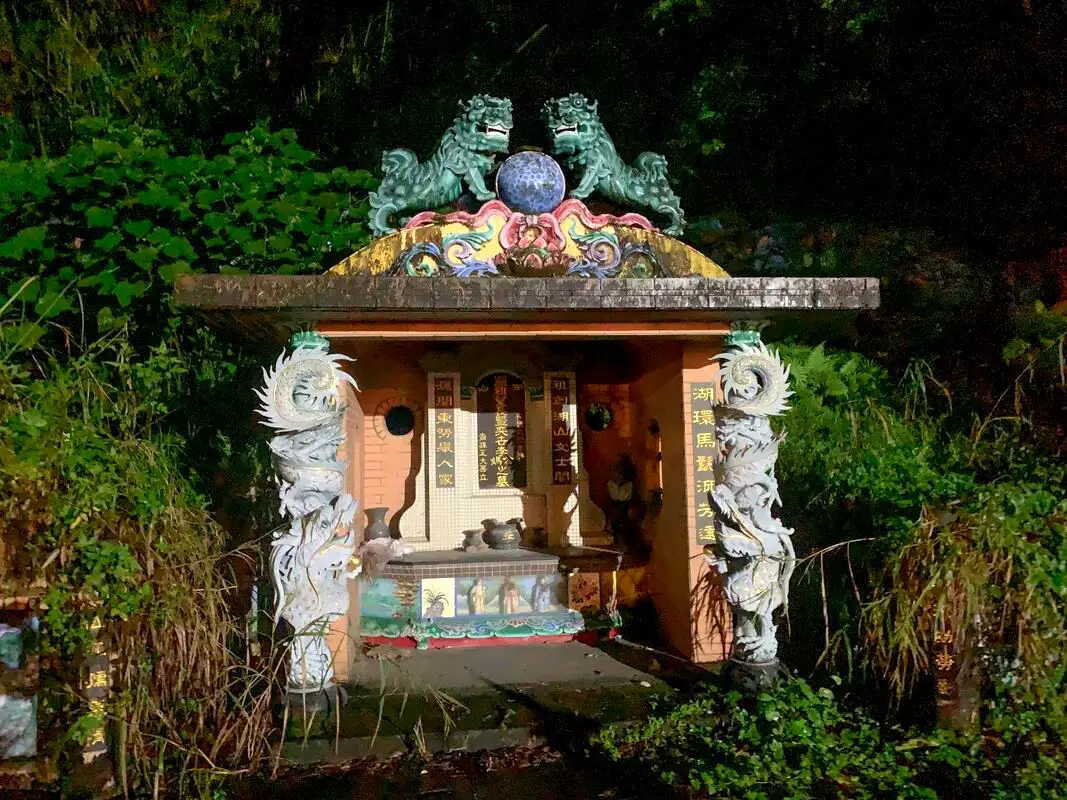

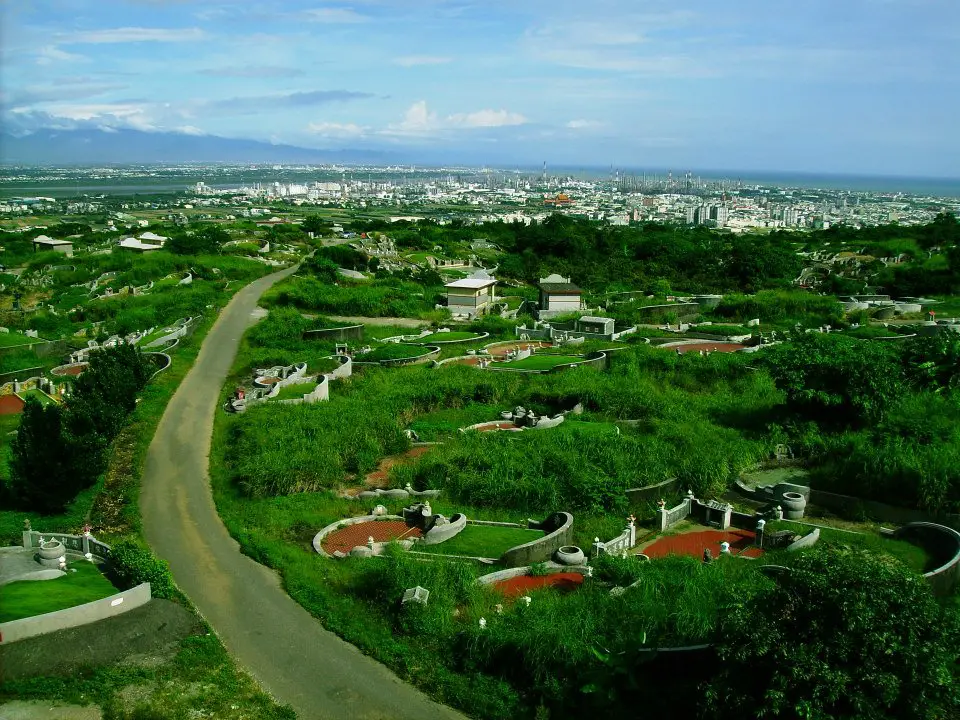
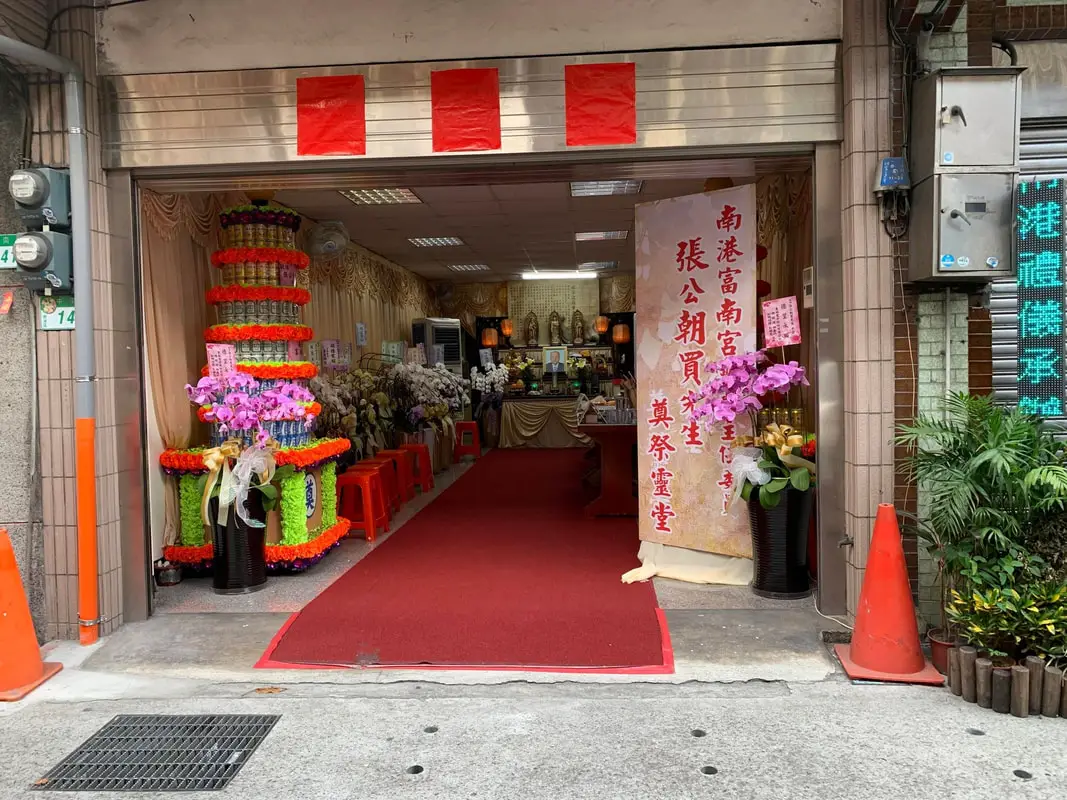
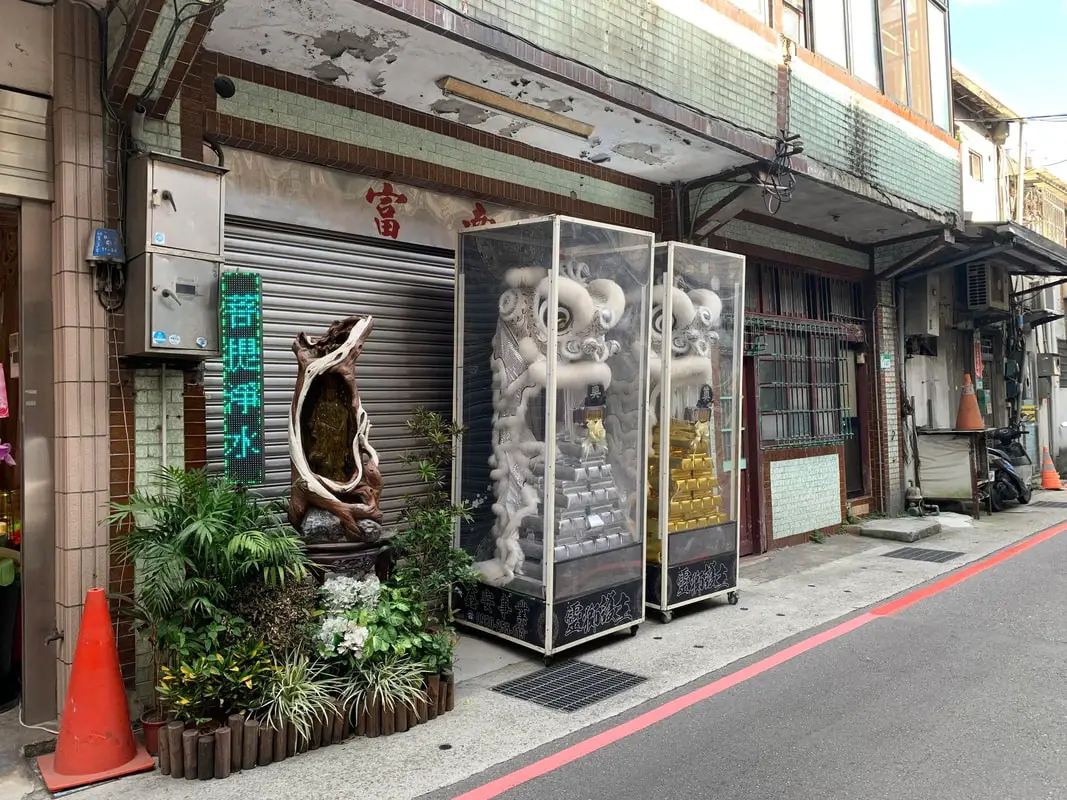
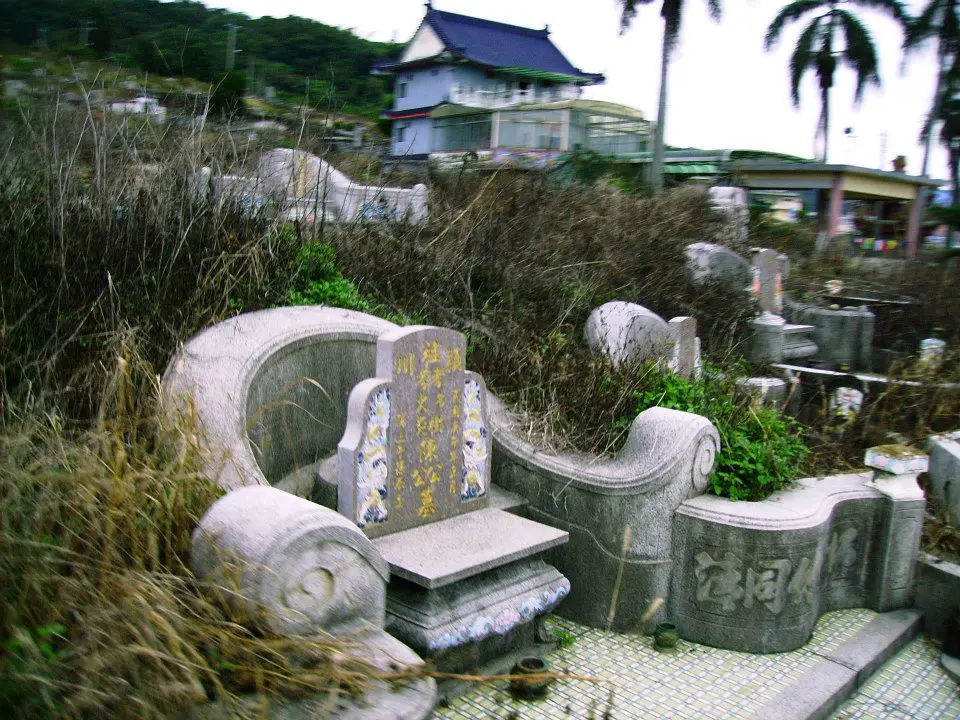
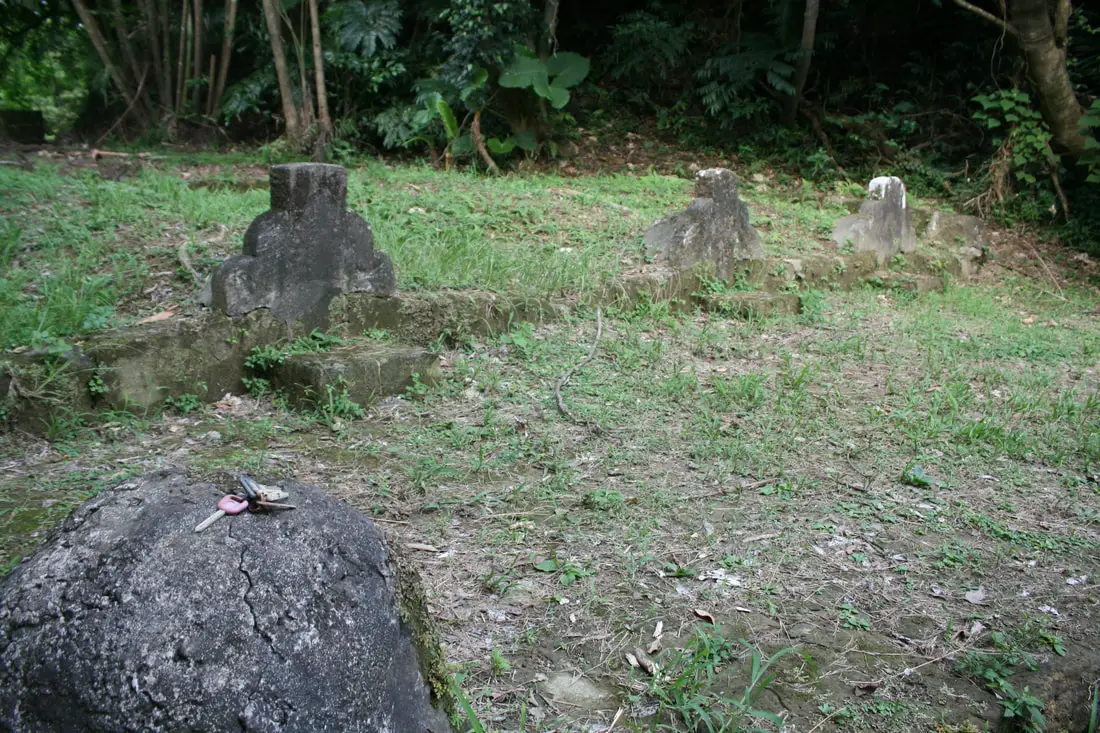
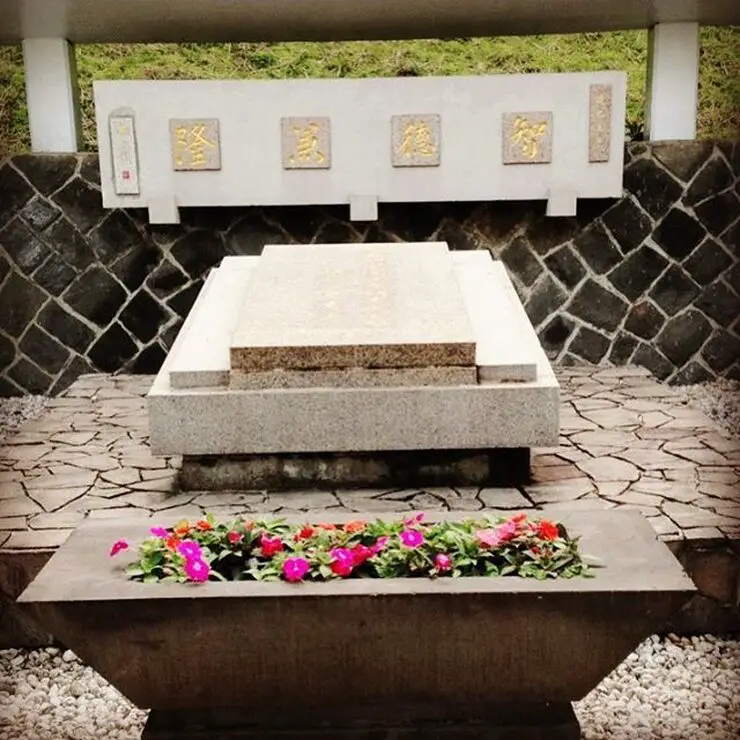
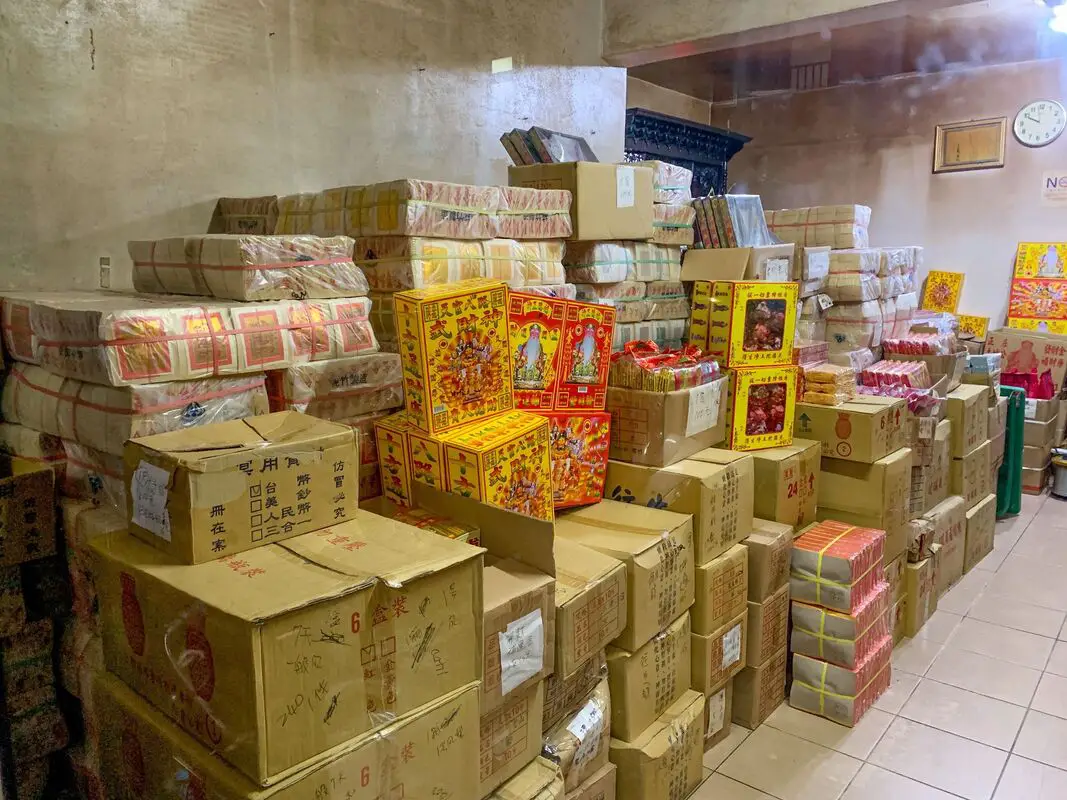
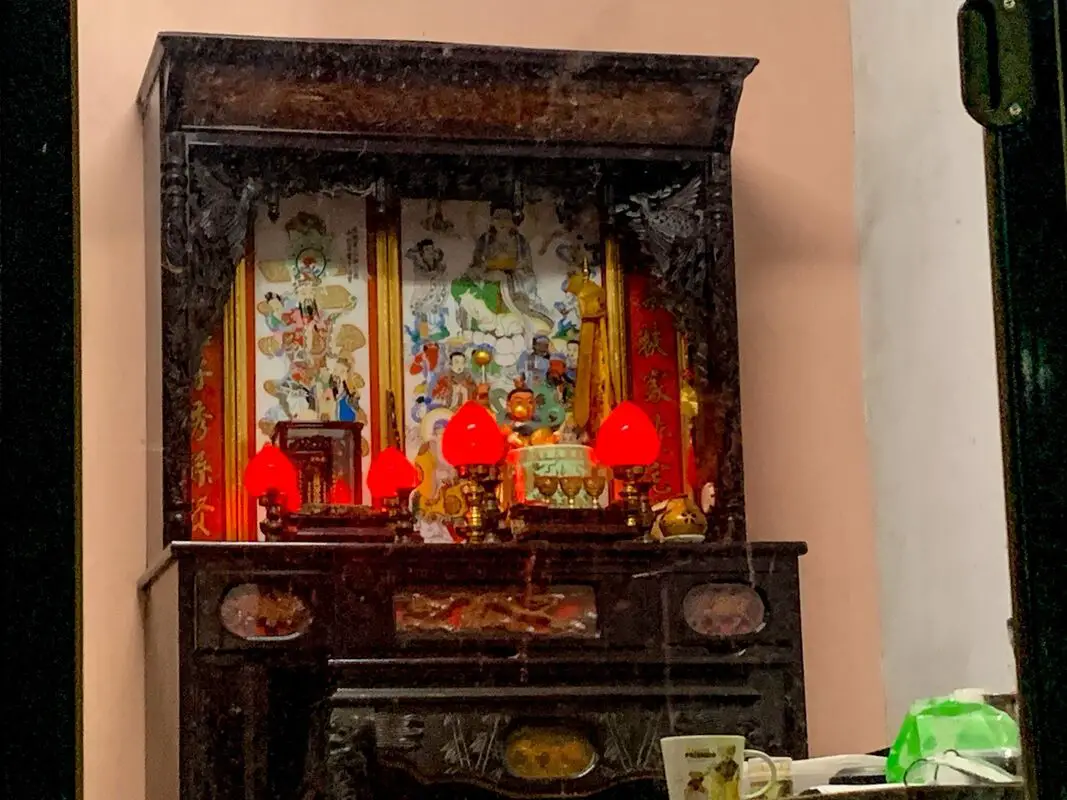
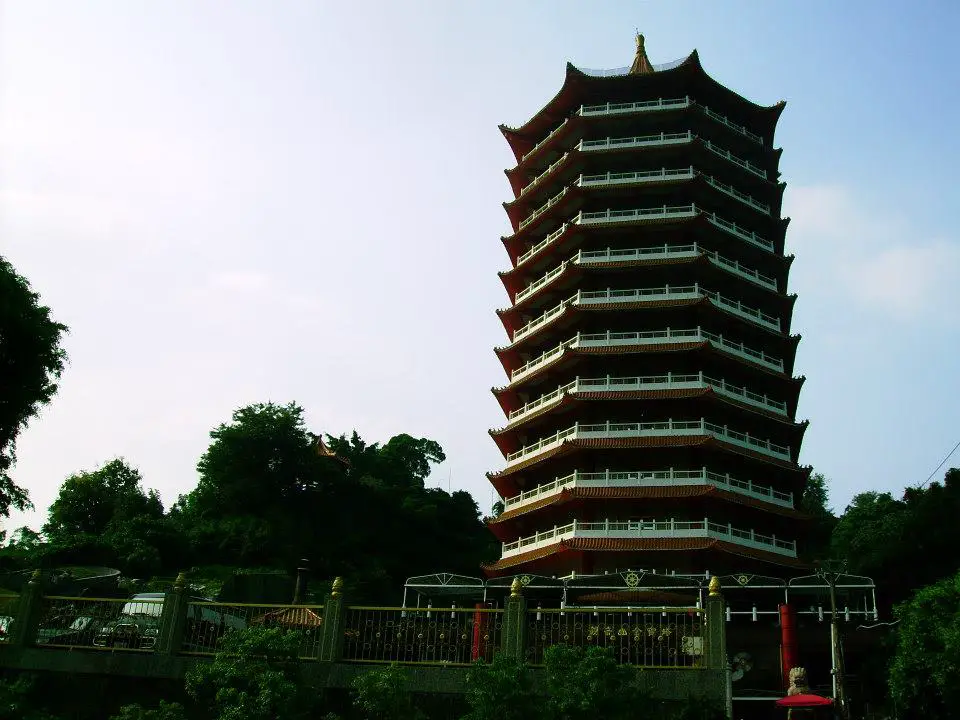
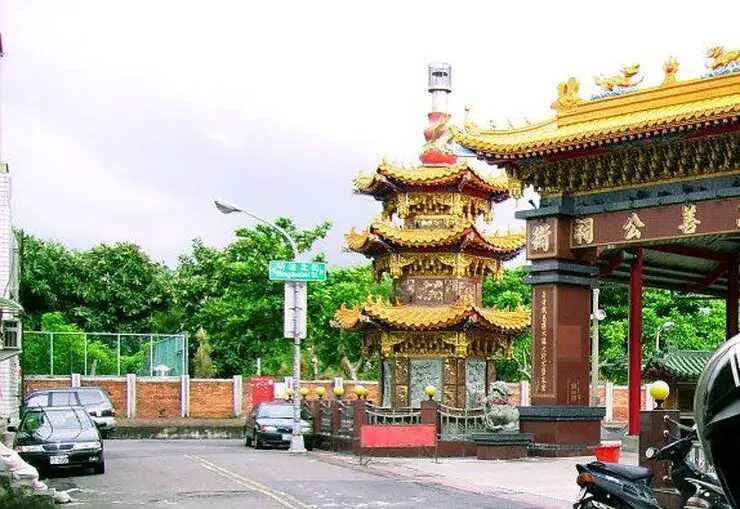
 RSS Feed
RSS Feed